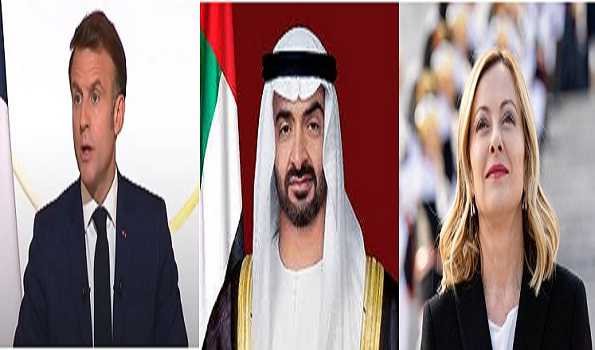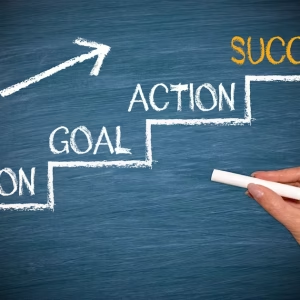UAE President Mobilizes Momentum for Mideast Restraint
ABU DHABI, June 15 — In separate calls with French President Emmanuel Macron and Italian Prime Minister Giorgia Meloni, UAE President Sheikh Mohamed bin Zayed Al Nahyan emphasized unity and diplomatic resolve amid the latest Middle East flare‑ups. The conversations, reported by WAM and Xinhua, focused on Israeli airstrikes in Iran and the urgent need for calm .
By reaching out to two key European leaders, Sheikh Mohamed cemented the UAE’s role as a mediator, advocating for maximum restraint and urging all involved parties to step back from further military escalation .
The UAE’s leadership underscored diplomacy as the only dependable way to preserve peace and regional stability. All parties pledged continued dialogue, emphasizing diplomacy over conflict as a shared strategy.

Diplomacy over Dispute: Joint Call for Calm
During both calls, the leaders resonated on several core principles:
- Restraint First: Agreeing that maximum restraint is essential to avert broader conflict.
- Diplomatic Solutions: Reinforcing belief that dialogue—not arms—is the path to security.
- Unified Front: Sending a clear message of trans‑regional cooperation that, together, they can de‑escalate tensions .
These synchronized messages reflect growing global concern. Israel‑Iran hostilities have already triggered missile exchanges, raised regional alarms, and derailed nuclear talks .
Strategic Partnerships: More than Crisis Management
Beyond crisis engagement, the discussions spotlighted the UAE’s deepening partnerships with France and Italy, spanning defense, energy, economy, and cultural exchanges . Recent high-profile visits and investment deals – like the UAE’s $40 billion commitment to Italian projects – reflect long-term ambitions .
This approach blends urgent diplomacy with sustained cooperation: acting as a calm, pragmatic force at moments of crisis, while nurturing future-forward alliances in peacetime.

Strong Signals from Europe
France and Italy have both signaled commitment and caution:
- France: President Macron has been actively calling for restraint, not just with the UAE but also with Iran. He is urging diplomatic breakthroughs and affirming France’s support for international norms .
- Italy: PM Meloni, recently presiding over an urgent summit on Middle East escalation, aligned with the UAE’s call for diplomatic resolutions while reinforcing Italy’s engagement in the G7 context .
These actions show a coordinated Western‑Gulf approach aimed at stabilizing the situation before it spirals into something far more dangerous.
Regional Reverberations: What This Means
- Cooling Tensions – By issuing a joint call for restraint, these three influential voices increase pressure on regional actors to think twice before taking provocative action.
- Diplomatic Channels Open – The moves lay groundwork for revived back‑channel talks, even as nuclear negotiations remain stalled.
- Global Coordination – Highlighting shared values and mechanisms, the UAE’s stance resonates widely—from NATO partners to Gulf neighbors—enhancing its role as a diplomatic pivot.
These conversations arrive in the wake of missile exchanges, canceled nuclear talks, and growing unrest—bringing some semblance of steadying influence .
A Human Touch Amid Crisis
What sets these calls apart is their humanized tone. Sheikh Mohamed isn’t just relaying strategy—he’s exhibiting empathy, concern, and a belief in shared humanity. By focusing on preventing civilian harm, preserving livelihoods, and championing lives, the tone is personal, urgent, and unifying.
Looking Ahead
- United Messaging: Expect more coordinated statements and diplomatic efforts involving Europe and Gulf allies.
- Policy Follow‑Up: Watch for potential G7 or EU‑UAE platforms emerging to channel this impulse into action.
- Crisis Management: If tensions dip, the UAE may redouble its role as a stabilizing broker, supporting humanitarian access and conflict de‑escalation.
Conclusion
Sheikh Mohamed’s calls with Emmanuel Macron and Giorgia Meloni underscore the UAE’s emerging role as both regional guardian and global peace‑broker. By fusing immediate crisis management with long-term strategic partnerships, the UAE and its European allies are demonstrating a proactive, human-centered blueprint for managing Middle East crises.
This isn’t just diplomacy—it’s a timely example of leadership that balances heart, hope, and hard-headed strategy.
Do follow UAE Stories on Instagram.
UAE Emerges as Lifeline for Asia Cup Amid India‑Pakistan Standoff













